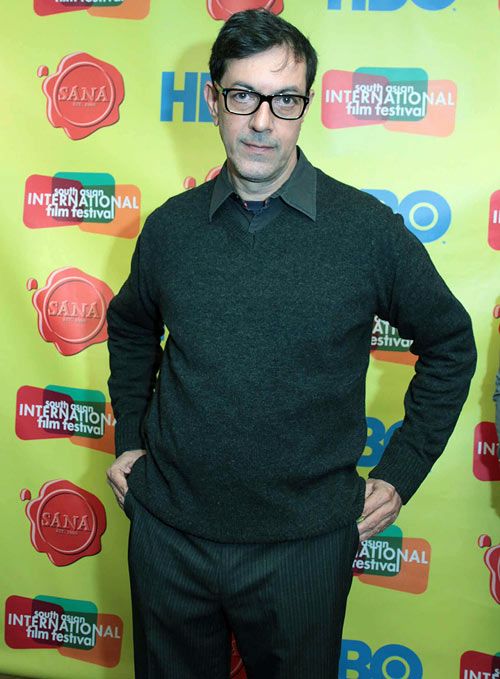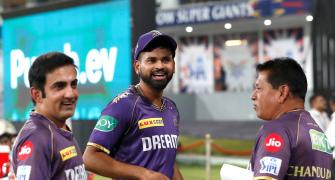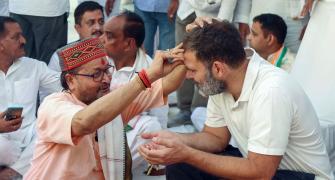 Actor-director Rajat Kapoor gives us an insight into his style of filmmaking.
Actor-director Rajat Kapoor gives us an insight into his style of filmmaking.
Rajat Kapoor’s Ankhon Dekhi was well-received at the recent South Asian International Film Festival and won the Audience Award for the best feature.
The film revolves around Bauji (Sanjay Mishra) a man, who chooses spontaneously to stop living according to the beliefs of others or society.
He quits his job, gives up religion, suspends verbal communication and dabbles in gambling. He wants to live authentically to his own reality and in doing so, he shocks and irritates his family and the community who think he is mad.
But he inspires viewers in his search of a path, which he feels is best for him after a lifetime of going along with the rules of the world.
The film is colourful and set in a chaotic joint family in Delhi.
Rajat Kapoor gives the details to Chaya Babu.
When did you come up with the idea for Ankhon Dekhi?
I had this idea for about seven or eight years -- about a man who lives through experience rather than ideas, experience over emotions, or experience over any other kind of truth.
I didn’t really know where to go with it. I was thinking of making a short film, but that didn’t work out. I had some scenes in my head, but I didn’t really have a character or anything.
About three years ago, I thought of setting this all in a joint family, and suddenly everything fell into place. So then Bauji emerged and his family emerged and it became what it is.
How did you think of this unusual concept?
I don’t know, maybe from my own experience. I think there’s a little of me in that. I just remember a time where I was going to work with someone and everyone around me told me, 'No, he’s not right. He is not the right man.'
And then I met this fellow and he turned out to be the opposite. We made an agreement to work together immediately. So I’ve tried to live a little like that -- trying to experience things myself -- not to the extent of Bauji of course.
How did you develop Bauji’s character?
It
And the theme just developed from there, like okay now he’s going to be mocked, now he’s going to be ridiculed, and now people are going to start following him and believing in his way and so on.
So I think you start building your scenes and the character emerges. I don’t start with a strong idea of who a character is. I think that’s terrible. I just start writing and the character comes to life on its own. Characters have their own lives and their own destinies, and somehow, as a writer, you have to follow that.
You have a trend of creating characters, in films like Raghu Romeo, Mixed Doubles, who are kind of social misfits. Why?
They’re on the margins, or do not adjust to society in the traditional sense. It’s true that in my last four or five films, the protagonists are ones who exist sort of on the edge of society.
I am not sure why that has happened. I suppose I just find these characters more interesting or their stories more interesting.
I don’t know. And also, the biggest influence on me is Charlie Chaplin. I think he was just a great actor, director, everything.
And if you look at The Tramp, maybe it comes from there. But it’s not something I’ve done intentionally at all. I’m discovering it only now.
How do you think Indian audiences will respond to the film?
I don’t know, I’m hopeful about the film. It’s not in my hands. But I think the response from the few people who have seen it has seemed very warm, so I’m optimistic.
Is independent cinema changing Indian cinema?
I think it has made a small dent in the overall structure over the past 10 years. But the pace is quite slow.
What has happened is that there’s a certain audience for these films, which have emerged over the last decade.
But we make way too many films and that’s the problem. The majority of audiences don’t know a good film from a bad one.
We’re still building a structure to have these films reach audiences who want them. So we have a long way to go.
Photograph: Paresh Gandhi






